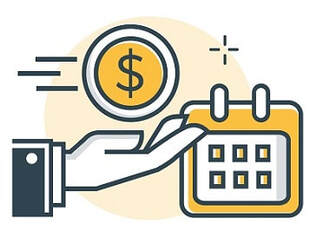40 Must-Know House Buying Tips
Our comprehensive guide includes must-know tips covering organising a deposit, talking to banks, searching for houses, making an offer, lawyers, conveyancing, KiwiSaver, removals and more.
Updated 24 January 2024
Buying a home summary
Disclaimer: As with all our guides, we have made all reasonable efforts to ensure accuracy. The guidance does not constitute legal advice for your personal circumstances. By using this guide, you do so at your own risk. If you have any suggestions or would like to contribute, please contact our research team.
Buying a home summary
- Buying a house or apartment is likely to be the biggest purchase of your life, so it’s important to have a good understanding and maximise your bang for buck from day one.
- Small mistakes and misunderstandings can cost BIG later on, and cause unnecessary amounts of stress and uncertainty. Our team has put together a foolproof house-buying guide, with 40 tips to give you everything you need to know.
- This guide covers what to look out for, how to shop for a home, and everything to ask before you make the jump into home ownership.
Disclaimer: As with all our guides, we have made all reasonable efforts to ensure accuracy. The guidance does not constitute legal advice for your personal circumstances. By using this guide, you do so at your own risk. If you have any suggestions or would like to contribute, please contact our research team.
New Zealand Houses - A Warning
Our view about the property market is simple:
- Since 2007, prices across New Zealand have risen to all-time highs, surging in Auckland, Hamilton, Wellington and Queenstown, with significant jumps in the regions as well. In 2020, with the effects of COVID-19, house prices went even higher.
- This has been led by intense competition for existing property as demands exceeds supply and an ongoing media frenzy, despite record new house building consents being issued.
- The end result has led to a difficult game for anyone trying to buy. Mortgages often require 10% to 20% deposits, and with the average price in Auckland around $750,000, this can require a deposit as high as $150,000.
- Today, with new legislation limiting foreign ownership, general uncertainty about capital gains tax and a changing global economy, prices have begun to cool off. Many properties are taking longer to sell than usual, and buyers can take a breath and closely consider when and where to buy without a rush.
Our view about the property market is simple:
- Buyers should focus on making sure their home purchase is affordable today and in the long term, before panicking and overstretching financially in an attempt to buy into “the Kiwi dream”.
- Despite what anyone (and everyone you know might be saying), no one can predict what is going to happen to house prices in the next few years. They might go down, they might go up. In the meantime, life goes on.
- By focusing on financial security first, buyers can avoid a mountain of debt and regret, and instead comfortably climb the housing ladder.
- Mortgage lending is New Zealand’s biggest debt, and a mortgage will be most people’s biggest single financial commitment, often spanning half of their adult lives. Small differences in how much you borrow can have a massive day-to-day effect on your life.
Our guide covers:
MoneyHub Founder Christopher Walsh shares his views on buying a home:
|
"This guide is one of my favourites on MoneyHub. It is packed full of useful tips to help you find a home and conserve your money for important things. We continue to build this guide out thanks to the useful tips we receive from every corner of New Zealand.
I also urge prospective home buyers to ignore the 'hustle' of real estate agents and don't let them bully you into 'over-offering'. I believe the behaviour of many agents throughout New Zealand to be greedy at best and heartless at worst. Buying a home shouldn't be an ordeal, and I hope to see things change in the coming years so we can return to how it was before house prices became intertwined with New Zealand's national identity. The MoneyHub team worked hard to put this guide together to explain must-know considerations and tips that agents or lenders won't tell you. At times of record living costs, we want to help get people out of renting and into homes faster and cheaper. This guide is designed to help you do just that". |
MoneyHub Founder
Christopher Walsh |
Step 1 - Get the biggest deposit possible
The higher your deposit as a percentage of your house price, the better the mortgage deal you can getFearing a housing crash, the previous government forced banks to take a deposit of at least 20% from homeowners in an effort to protect banks if house prices sink. The good news is that this 20% can be paid in cash and/or KiwiSaver money. Our guide to the KiwiSaver First-Home Withdrawal process outlines how to apply for your money. The KiwiSaver HomeStart Grant guide explains how you can get up to $20,000 from the government if you meet certain criteria.
In general, the higher the deposit as a percentage of your house price, the lower the mortgage interest rate. While 20% sounds achievable, it’s a huge chunk of money for the ordinary Kiwi - 20% on an $800,000 house around Auckland is $160,000. Our mortgage rate guide explains the best deals currently offered for homeowners with a 20% deposit or re-mortgaging. |
Step 2 - Budget for your purchase properly
Understand and Plan for the True Cost of Buying a PropertyBuying a property is not a straight forward process, and it’s almost guaranteed to cost a lot more than you think and items won’t be covered by your mortgage. We list below exactly what to factor in a number of fees you need to stump up to get a house purchase over the line:
We detail these costs in more detail below so their nature is properly understood and budgeted for. |
Conveyancing/Legal fees - covering the legal process of buying a propertyConveyancing is the process of transferring the ownership of the property from the seller to the buyer. The steps are straightforward:
How much does this cost?
|
Mortgage arrangement or establishment feeSome banks and credit unions charge a fee to 'apply', 'arrange' or 'establish' a mortgage, on top of the interest rate. Check our mortgage interest rate guide to see which ones do and don't. This fee is non-refundable fee even if you change your mind later on and don't go ahead with the mortgage. The fee is designed to cover the paperwork that comes with a mortgage.
How much does this cost?
|
Valuation report, (valuing the property for the purpose of making an offer)This fee is optional, but recommended to get an accurate value which assists with making an offer. Without a valuation, it's harder to have a firm number, which can be more relevant than websites like QV.co.nz or homes.co.nz. These websites give a CV valuation, but don't offer detailed reports, current market conditions or local expertise.
How much does this cost?
|
Pre-purchase home inspections thoroughly check the condition of the propertyNew Zealand, generally, has a poor reputation for the quality of its housing. To avoid buying a problem home, it can make sense to invest in a property inspection report. The potential issues go beyond leaky buildings - there is meth contamination and all sorts of other nasties. If you want peace of mind, look for a building inspector whose report offers:
How much does this cost?
|
If you own a lot of stuff, budget for removal costsUnless you have minimal stuff and can fit them into a car, or have a close friend or family member with a van, you will need a removal company.
How much does this cost?
|
Set some money aside for unexpected DIY repairsMany new homeowners find they need to DIY a few things which they didn’t expect, specifically plumbing, roofing and painting. Many things are probably passable, but sometimes they are not and fixing them before friends and family come around to visit will need a small sum of money.
How much does this cost?
|
Budget for decent furniture and essential itemsIf you currently live in a furnished flat, you're unlikely to own a lot of furniture (if any at all). If you do own furniture, make an estimation as to whether or not it's enough. If you're leaving a rental property for a bigger property, extra beds, bed-side tables, tables, chairs and bookshelves are probably going to be needed. And then there are the less exciting pieces - light bulbs, lighting shades, indoor plants, doormats and plates and cutlery if you don't own any.
Many people make the mistake of getting less-than-desirable items as a filler, hoping to upgrade once they're settled in their new house. This can be problematic as priorities once owning a home change and replacing furniture can fall from the top of the list. For this reason, it is worth considering making an upfront investment in items you see as being in your home for the long-term. The upfront cost will be higher, but you'll save the hassle and expense later on. How much does this cost?
|
Step 3 - Start the property hunt with precision
Have a Mortgage Budget and Leave Some Decent Breathing SpaceUnsure of what you can borrow and how much you can afford to pay on a mortgage? Our calculators put you at ease:
Know this: Banks want to sell mortgages, and while they need to be responsible lenders, there is a risk you could borrow more than you can really afford. Do your own budget and be realistic – mortgage struggles are rife all over New Zealand (as this article outlines), and it creates a lot of stress and tension in any relationship. Having a manageable mortgage is an undeniable way to live happier. Quite simply, if you over-budget your property purchase, life can become a struggle, and you run the risk of being cash poor and unable to pay for emergencies. |
ONLY View Properties you CAN AffordIt’s pointless having unrealistic aspirations about house hunting. While a fair few homes are marketed as auctions, you can easily find out a price range from the agent. Be prudent – there’s no point in wasting your time and the seller and agent’s time if you can’t afford the price. Agents will remember you, and it may cost you later on.
|
Don’t Muck Around an Agent - They WILL Remember YouNew Zealand is small, and agents talk among themselves. No matter the shape of the market, you will be remembered if you stuff people around and it may make it harder to negotiate if you have a bad reputation. Don’t make an offer if you have doubts, and always be responsive to an agent if you’re serious about a property. Be honest,
MoneyHub user David recounts: "I offered a reasonable sum of money for a house in West Auckland, but then after thinking about it I changed my mind. I ignored emails from the agent, so eventually they dropped me. I then went to visit another open home in the same area, loved the house and then made an offer before finding out it was the same owner! He wouldn’t deal with me unless I put down a non-refundable deposit. I got the place but was on the back foot throughout the process. Learned from that one". |
Look at free house sale price data to get an idea of recent sales and pricesKiwis are now very savvy with online tools that isolate and value property. This information is available free of charge in most instances. Popular sites include:
Expert Tip - You can also search the address, and use Google cache to see deleted property adverts with all the pictures and prices. |
Be Familiar with the House Buying Process BEFORE Visting Your First Open HomeThe entire process can be an easy road, from looking online for a property to getting the keys and moving in, but it depends on how much you know about the process. Generally, the steps involved are in this order:
|
Build up your credit score well in advance of applying for a mortgageYou will usually be given a mortgage if you meet the following criteria:
The 'suitable credit score' factor is important, and to make sure the credit history lenders see is correct, it's worth spending $10 to $20 to access your credit history. Read our credit score and credit history guide for more information. |
Be proactive and arrange a “mortgage in principle” (MIP)Banks offer a 'mortgage in principle' (MIP) which is a provisional amount you can borrow once you find a property. This lets you shop for a home within the dollar amount. An MIP has a time limit, and does not fix the interest rate you’ll be charged. Having an MIP in place gives you the confidence to make an offer, as any offer you make will not be conditional on financing.
How does an MIP work? Let's take an example:
How Mortgage Brokers can help If you prefer to talk to someone who is not a lender, making an appointment with a mortgage broker can be helpful. Besides working for you to find the best mortgage deal, they can give you an idea of how much you can borrow. Our guide to mortgage brokers outlines the number of benefits they offer. |
Know For Later: Remortgage When Your Interest Deal ExpiresWhen your mortgage deal expires, it will usually jump to the bank’s floating interest rate. In almost all cases, the current mortgage rate deals will be much cheaper, between 1-3% currently. You can compare the difference between the floating/standard rate and the latest 2-year or 5-year mortgage term deals by using our fixed vs floating mortgage calculator.
As an example, a fixed rate of 3.99% compared to a floating rate of 4.99% on a $300,000 mortgage will save you $170 a month ($2,040 over one year). It’s big money, and you should mark in your calendar a reminder a month or two before your current mortgage expires so you can research the best deal and switch with precision saving you money. Our mortgage rates guide lists the latest deals. |
Step 4 - Picking a property with absolute certainty
Do proper due diligence on a property - the more you know, the easier everything else will beAs your property is your largest purchase, location location location what matters most. You may love the home, but if you don’t love the area you will never be able to move it. A five-point plan of attack is needed to avoid problems or disappointment later on.
1. Scope out the neighbourhood
2. 'Sun Map' the property
3. Google the address
4. Use the best property finders
5. Get in the Know - Ask the agent for the cold hard facts
Before you make an offer, you need to ask key open questions and get the answers in writing if possible. When it comes to buying a property, information is your biggest advantage! We have a list of 20 hard-hitting questions to ask your agent:
|
Visit the NeighboursIf you know of anyone who lives in the area, even a friend of a friend, visit them or set up a coffee with your friends who know them. Basically, ask around – everyone knows someone – so you’ll be sure to get the best insights if you put in the efforts here. Ask what the area is like, ask what the seller is like (if they know of them), and ask what changes are likely to happen in the area over the next few years.
|
Don’t Underestimate the Importance of ResaleIt’s unlikely the house you buy will be the one you live in forever. You may want to go for the lifestyle block with the long commute, but it will be a lot harder to sell than a four bedroom house close to good schools. Ease of resale is really important. And it’s not just location, it’s also the aesthetics of the house. No one wants a house with a bathroom attached to the kitchen, nor do they want a house with a neighbour’s spa pool humming loudly beside the master bedroom. What you tolerate is not the same as the people you're potentially buying from. Approach house buying without emotion and the outcome will be better.
MoneyHub user Annette writes: "My brother and I spent a lot of time and money renovating a beach house both our families could use. However, our kids got older and married and by the time we wanted to sell it there wasn’t much of a demand. We had spent more than we sold it for, and that’s before taking into account our time invested. Location really is everything". MoneyHub’s user Maria writes: "We bought an apartment with a big support column through the lounge. It was significantly cheaper than the other apartments on the plan, but I know that when we sell it, that column will be talked about!" |
Find Out How Long It’s Been for SaleA property that’s been for sale for a while can be a red flag. Is something not quite right with the street, the neighbours, the noise or something else? Ask the agent how long it has been listed for. While market conditions throughout New Zealand may explain houses sitting there, it's in your interests to find out exactly what the story is.
|
Follow an Open Home Checklist to Avoid Nasty SurprisesWhen you visit an open home, taking photos is important, but doing an inspection is critical. We’ve outlined some must-dos to tick off for every viewing. As you see more houses, you’ll become an expert! Make no apology; you’re investing hundreds of thousands of dollars, so checking everything out thoroughly is essential:
Take Photos at the Open Home
|
There may be a Possibility in Arranging a Private Sale
|
Beware of expensive property management/body corporate charges
Top Tip - A Google of the property management company is a great way to understand if there are any issues. Does it have complaints, a troubled director, or a bad history? You are free to ask apartment owners in the same building their views on the service provided – is it excessive, slow, substandard or dismissive? |
Get Quotes for Conveyancing – Don’t go with the first lawyer you contactConveyancing is the legal process that transfers property from one person to another. Lawyers all over New Zealand offer this service, but fees can vary. There is a bit of work involved (legal property searches, paperwork preparation and contract drafting) and you can’t DIY the process nor can you risk getting a bad lawyer for a cut price. Our suggested approach is as follows:
|
Check what's being built in the neighbourhoodThe last thing you want is to find out is that the old house beside you is going to be bulldozed for a three-story apartment block to be built. To know exactly what’s going in the area, contact your local council and ask them to provide you with all and any resource and building consents. It’s best to be aware of these things than stuck beside a building site or have your backyard overshadowed by a new development.
|
Step 5 - Get familiar with the legal process to avoid expensive problems
Auctions, Agents and How Much to Offer?
|
Stay in contact with your lawyer
|
Get an inventory of “Fixtures and Chattels” confirmed, in writing
|
Know when and if you can pull out
|
Get quotes for required work
|
Leaky Building? What to knowLeaky buildings are complicated - this guide from the Home Owners and Buyers Association Inc (HOBANZ) explains what your rights are, and appropriate next steps. Their team can be contacted for assistance.
|
Top Five last-ditch questions to ask sellersMoving into a new home is a big deal, and getting the basics from the previous owner before they go off into the sunset is essential. To help, we've compiled a list of top questions to ask:
|
Step 6 - Preparing for the Day You Own a Home
Get quotes for movingIt’s likely you will need a moving company - have a ring around local operations and look for some Google reviews. If you’re buying your first property, you might have less stuff to move, so it's possible you could get away with a man with a van and help from some friends.
Make sure whoever you use is reliable – being stranded on move day by a no show is going to be a nightmare. Packing takes longer than you think, and it’s a good chance to sort things out and throw away/sell what you don’t need. |
Be a Trade Me warrior – sell what you don’t needWith a moving date fixed, if you can make the time you can make your move easier by selling what you don’t need or use well in advance. Our guide to Trade Me Selling outlines everything you need to know to turn surplus into cash, without the hassle of garage sales or selling on Facebook. Even if you are unfamiliar with Trade Me, it's super easy and cheap to use.
|
Get home insurance quotesYou’ll need home insurance before you settle – get quotes as soon as possible so you’re protected from day 1 of owning your new property. Get as many quotes as possible - our Home Insurance guide covers everything you need to know. You will need to estimate the rebuilding cost of your new home, which our home insurance calculator can assist with.
|
Resist buying your bank's life insurance policyHaving a mortgage is an enormous undertaking and an ongoing financial commitment. If you have a family who depends on you, life insurance can be a popular option to protect them should the unthinkable happen to you and/or your partner. Our guide to life insurance explains how to determine if you need life insurance, then compares a number of options and outlines what to look for in a policy.
|
Save money on broadband and electricityDon't assume your current providers offer the best deal - moving home is the perfect opportunity to switch and save. Our guide to the best electricity companies helps you land the best deal.
Important - it’s essential that you take electricity meter readings when you move in so there are no disputes later on. If you don't, you can be liable to pay for electricity used after the previous occupants cancelled their bill...and that could be significant. |
Don’t sign up to insurances offered by your bank without comparing them firstBanks will offer all sorts of insurances such as mortgage, income protection, home, house and contents – they are unlikely to be the best in the market, nor the cheapest. Politely consider the policies, but don’t be under any obligation to say yes to what they offer – their aim is to make more money from you, not provide you with the best deal. We believe many banks sell insurance policies without full consideration of your needs, and this is frequently reported by the media. In summary, we suggest avoiding their insurance products in their entirety.
|
Related Guides:
Buying a Home Guides:
Selling a Home Guides:
- Top 10 Home Loans
- Low-deposit Home Loans
- KiwiSaver First Home Withdrawal
- Revolving Credit Mortgages
- Rent to Own Homes
- Mortgage Brokers
Buying a Home Guides:
- Best House Price & Valuation Websites
- Home Buying Glossary
- New Zealand Property Types
- Rateable Value vs Market Value
- Leasehold Property Guide
- Conveyancing
- Tiny Homes in New Zealand
Selling a Home Guides:
















































